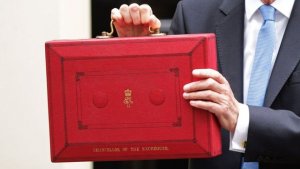- Tax & Estate Planning

Shorter Reads
What gifting options do non-domiciliaries have?
When it comes to the UK tax implications of lifetime gifts, non-domiciliaries are in a special category. Often, non-doms have far more options for tax-efficient planning than UK domiciliaries.
1 minute read
Published 24 January 2022
Key information
- Specialisms
- Private Wealth
- Services
- Tax & Estate Planning
What is a non-dom?
A non-dom is someone who is neither domiciled nor deemed-domiciled in the UK.
Broadly, a person’s domicile is the place they consider to be their permanent home. Your domicile of origin is your father’s domicile when you were born. Then, once you are over 16, you can acquire a domicile of choice elsewhere if you move there and intend to remain permanently or indefinitely.
Even if you do not acquire a domicile of choice in the UK, once you have been resident here for 15 of the last 20 tax years, you become deemed-domiciled for all UK tax purposes.
What planning options does a non-dom have?
Unlike a UK domiciled person, non-UK assets owned by a non-dom are completely outside the scope of UK inheritance tax (IHT). So, if a non-dom makes a gift of their assets held outside the UK, then that gift will never be exposed to IHT.
One step further than that is for the non-dom to transfer non-UK assets into trust (known as an “excluded property trust”). By doing that, the assets can be kept outside the scope of IHT indefinitely, provided that the trust itself never holds UK assets. This can be particularly valuable if the non-dom themself or their family members are in the UK and may stay there longer term. The IHT benefits are be “locked in” for the benefit of the family for years to come.
One other positive of this type of planning is that the excluded property rules take precedence over the “gift with reservation of benefit” rules (which treat assets as remaining in your IHT estate if you give them away but retain the use of them). So, unlike a UK domiciled person, a non-dom can settle non-UK assets on trust and also be a beneficiary of that trust without the assets being treated as if they still belonged to the individual.
What if I inherit assets from a non-dom?
If a non-dom leaves assets outright to a UK domiciled person, there will be no IHT at that point provided the assets were non-UK assets. However, from that point on, those assets, those assets will immediately form part of the IHT estate of the UK domiciled beneficiary.
All is not lost, though. It is possible for that beneficiary to enter into a deed of variation within two years of the non-dom’s death to redirect the assets into a trust. Because the trust will then be treated as having been established by the non-dom for IHT purposes, it will be an excluded property trust. Bear in mind, though, that the trust is still treated as having been created by the UK domiciled beneficiary for income tax purposes, which brings into play a series of settlor-interested trust rules.
What are the pitfalls?
While there are a variety of valuable estate planning options open to non-doms, there are also complexities. Simply establishing where someone is domiciled is not always straightforward; inevitably there will be laws and taxes in other jurisdictions to consider; and trusts, particularly non-UK resident trusts, come with complex tax rules which need to be navigated. Expert advice should be taken, and certainly before a non-dom has been UK resident for fifteen tax years.
This article is part of the Lifetime Giving series. Read our previous article: Gifting up a generation
Related content
Shorter Reads
What gifting options do non-domiciliaries have?
When it comes to the UK tax implications of lifetime gifts, non-domiciliaries are in a special category. Often, non-doms have far more options for tax-efficient planning than UK domiciliaries.
Published 24 January 2022
Associated sectors / services
Authors
What is a non-dom?
A non-dom is someone who is neither domiciled nor deemed-domiciled in the UK.
Broadly, a person’s domicile is the place they consider to be their permanent home. Your domicile of origin is your father’s domicile when you were born. Then, once you are over 16, you can acquire a domicile of choice elsewhere if you move there and intend to remain permanently or indefinitely.
Even if you do not acquire a domicile of choice in the UK, once you have been resident here for 15 of the last 20 tax years, you become deemed-domiciled for all UK tax purposes.
What planning options does a non-dom have?
Unlike a UK domiciled person, non-UK assets owned by a non-dom are completely outside the scope of UK inheritance tax (IHT). So, if a non-dom makes a gift of their assets held outside the UK, then that gift will never be exposed to IHT.
One step further than that is for the non-dom to transfer non-UK assets into trust (known as an “excluded property trust”). By doing that, the assets can be kept outside the scope of IHT indefinitely, provided that the trust itself never holds UK assets. This can be particularly valuable if the non-dom themself or their family members are in the UK and may stay there longer term. The IHT benefits are be “locked in” for the benefit of the family for years to come.
One other positive of this type of planning is that the excluded property rules take precedence over the “gift with reservation of benefit” rules (which treat assets as remaining in your IHT estate if you give them away but retain the use of them). So, unlike a UK domiciled person, a non-dom can settle non-UK assets on trust and also be a beneficiary of that trust without the assets being treated as if they still belonged to the individual.
What if I inherit assets from a non-dom?
If a non-dom leaves assets outright to a UK domiciled person, there will be no IHT at that point provided the assets were non-UK assets. However, from that point on, those assets, those assets will immediately form part of the IHT estate of the UK domiciled beneficiary.
All is not lost, though. It is possible for that beneficiary to enter into a deed of variation within two years of the non-dom’s death to redirect the assets into a trust. Because the trust will then be treated as having been established by the non-dom for IHT purposes, it will be an excluded property trust. Bear in mind, though, that the trust is still treated as having been created by the UK domiciled beneficiary for income tax purposes, which brings into play a series of settlor-interested trust rules.
What are the pitfalls?
While there are a variety of valuable estate planning options open to non-doms, there are also complexities. Simply establishing where someone is domiciled is not always straightforward; inevitably there will be laws and taxes in other jurisdictions to consider; and trusts, particularly non-UK resident trusts, come with complex tax rules which need to be navigated. Expert advice should be taken, and certainly before a non-dom has been UK resident for fifteen tax years.
This article is part of the Lifetime Giving series. Read our previous article: Gifting up a generation
Associated sectors / services
- Tax & Estate Planning
Authors
Need some more information? Make an enquiry below.
Subscribe
Please add your details and your areas of interest below
Article contributor
Peter
DanielPartner - Head of Private Wealth
Specialising in UK trusts, tax & estate planning, International trusts, tax & estate planning, Private wealth, Probate and US/UK Tax & estate planning
Enjoy reading our articles? why not subscribe to notifications so you’ll never miss one?
Subscribe to our articlesMessage us on WhatsApp (calling not available)
Please note that Collyer Bristow provides this service during office hours for general information and enquiries only and that no legal or other professional advice will be provided over the WhatsApp platform. Please also note that if you choose to use this platform your personal data is likely to be processed outside the UK and EEA, including in the US. Appropriate legal or other professional opinion should be taken before taking or omitting to take any action in respect of any specific problem. Collyer Bristow LLP accepts no liability for any loss or damage which may arise from reliance on information provided. All information will be deleted immediately upon completion of a conversation.
Close


































































